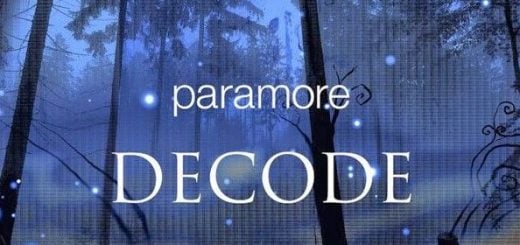Whoa by Paramore Lyrics Meaning – Decoding the Rallying Cry for Self-Reliance
- Music Video
- Lyrics
-
Song Meaning
- A Chorus That Binds: The Irresistible Pull of Collective Singing
- The Paradox of Self-reliance: Unraveling the Song’s Hidden Meaning
- Trapped in Transition: The Struggle for Consistent Progress
- The Siren Call of Independence: A Confession of Stubborn Selfishness
- Memorable Lines That Echo the Human Experience
Lyrics
It gets better everyday
I’ve hoped for change
But still I feel the same
There’s something wrong
‘Cause everybody knows
That we can do this on our own
And we got everybody singing
Whoa, whoa-oh, whoa whoa-oh
And we got everybody singing
Whoa, whoa-oh, whoa whoa-oh
We’re doing fine
And it gets better every time
We’re doing fine
But I’ll let you decide
There’s something wrong
‘Cause everybody knows
That we can do this on our own
And we got everybody singing
Whoa, whoa-oh, whoa whoa-oh
And we got everybody singing
Whoa, whoa-oh, whoa whoa-oh
And I’ll confess
That I can be a little selfish
Yeah I’ll admit
I don’t want you to help me through this
I don’t want to start over again
And we got everybody singing
And we got everybody singing
Whoa, whoa-oh, whoa whoa-oh
And we got everybody singing
Whoa, whoa-oh, whoa whoa-oh
And I’ll confess
That I can be a little selfish
I can, I can
Yeah, I’ll admit
I don’t want you to get me through this
I don’t want to start over again
Paramore’s ‘Whoa’ is more than just a catchy track with an infectious chorus; it’s a nuanced exploration of the human desire for personal growth and the internal struggles that accompany it. At first glance, one might dismiss the song as a simple pop-punk anthem, but a closer analysis reveals layers of self-reflection and an assertive message about independence and self-efficacy.
Dive into the heart of ‘Whoa’ as we unravel its lyrical tapestry, capturing the essence of a song that speaks volumes about the complexity of change, the power of unity, and the ironies of self-reliance. This is a dissection of the paradoxical nature of personal growth within a community, beautifully wrapped in power chords and belted melodies.
A Chorus That Binds: The Irresistible Pull of Collective Singing
Paramore has a penchant for crafting choruses that transcend the confines of genre, becoming something of an anthem. The repeated lines ‘And we got everybody singing / Whoa, whoa-oh, whoa whoa-oh’ are like a rallying cry that invites listeners to join in a collective experience. These simple yet potent lines serve as a binding agent, a musical glue that turns individual listeners into a communal entity – a phenomenon that’s crucial to the song’s theme and appeal.
The ‘Whoa’ often read like an exclamation of realization or surprise, an epiphany that comes with self-awareness. Here it is transformed into a call to arms, a shared acknowledgment that resonates with anyone listening. It’s this universally relatable expression that makes the song a staple in Paramore’s live performances, creating a moment of unity among the audience.
The Paradox of Self-reliance: Unraveling the Song’s Hidden Meaning
‘There’s something wrong / ‘Cause everybody knows / That we can do this on our own’ – these lines encapsulate the song’s internal contradiction and arguably its most profound message. On the surface, the lyrics emphasize the importance of self-reliance, suggesting that change and growth are the fruits of individual effort. Yet, by having an anthemic chorus sung by the collective voice of the band and audience, ‘Whoa’ implies that togetherness is key to personal evolution.
This duality is the hidden meaning of the song: it presents an introspective question about the role of community in our quest for self-improvement. Can we really do it on our own, or do we need the support and camaraderie of others to propel us forward? The song doesn’t provide a definite answer but rather celebrates the tension between autonomy and solidarity.
Trapped in Transition: The Struggle for Consistent Progress
The simple but evocative lines, ‘I’ve hoped for change / It gets better everyday / I’ve hoped for change / But still I feel the same,’ reflect the nuanced process of personal transformation. It is a struggle well-known – the oscillation between optimism and stagnation, the efforts to evolve while feeling trapped in the immutability of one’s own nature.
Paramore uses these lyrics to express an awareness that change is not a straight line but a series of ups and downs. The admission that, despite daily improvements, one can feel as though nothing has changed, is a raw acknowledgment of the frustrations that accompany growth.
The Siren Call of Independence: A Confession of Stubborn Selfishness
‘And I’ll confess / That I can be a little selfish / Yeah, I’ll admit / I don’t want you to help me through this’ sketches a portrait of a fiercely independent spirit. These words serve as a confession, acknowledging that the need for autonomy can sometimes border on self-serving insularity.
This bold declaration is especially compelling when set against the backdrop of the chorus’s emphasis on communal unity. It indicates a push-and-pull between the desire to connect with others through collective experiences and the need to assert one’s own path and strength in isolation.
Memorable Lines That Echo the Human Experience
Paramore’s talent for creating lines that stick with you long after the song has ended is evident throughout ‘Whoa.’ Each phrase, while seemingly straightforward, resonates deeply with the shared human experience of striving for betterment against internal resistance and external expectations.
Drawing from these universal themes, the song manages to be both personal and widely relatable. It speaks to anyone who has ever grappled with the desire to change, felt the weight of self-doubt, or questioned their need for others. It’s this relatability that has secured ‘Whoa’ a lasting position in the hearts of listeners and solidified its status as an anthem of human resilience and introspection.








